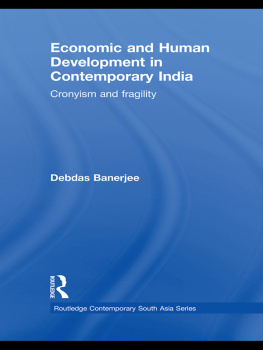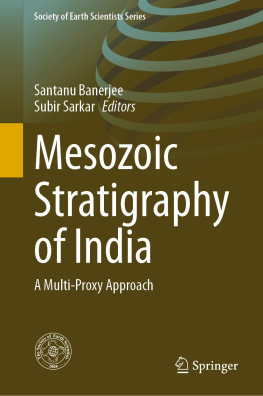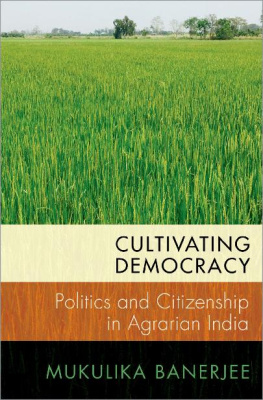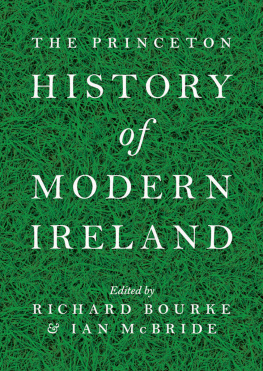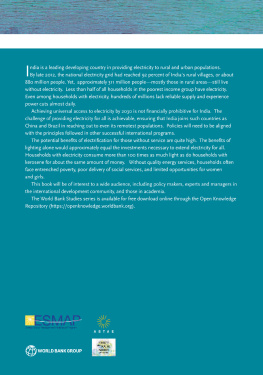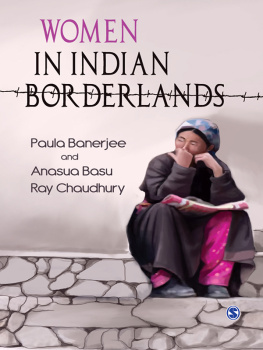Sikata Banerjee - Muscular Nationalism: Gender, Violence, and Empire in India and Ireland, 1914-2004
Here you can read online Sikata Banerjee - Muscular Nationalism: Gender, Violence, and Empire in India and Ireland, 1914-2004 full text of the book (entire story) in english for free. Download pdf and epub, get meaning, cover and reviews about this ebook. year: 2012, publisher: New York University Press, genre: Politics. Description of the work, (preface) as well as reviews are available. Best literature library LitArk.com created for fans of good reading and offers a wide selection of genres:
Romance novel
Science fiction
Adventure
Detective
Science
History
Home and family
Prose
Art
Politics
Computer
Non-fiction
Religion
Business
Children
Humor
Choose a favorite category and find really read worthwhile books. Enjoy immersion in the world of imagination, feel the emotions of the characters or learn something new for yourself, make an fascinating discovery.

- Book:Muscular Nationalism: Gender, Violence, and Empire in India and Ireland, 1914-2004
- Author:
- Publisher:New York University Press
- Genre:
- Year:2012
- Rating:3 / 5
- Favourites:Add to favourites
- Your mark:
- 60
- 1
- 2
- 3
- 4
- 5
Muscular Nationalism: Gender, Violence, and Empire in India and Ireland, 1914-2004: summary, description and annotation
We offer to read an annotation, description, summary or preface (depends on what the author of the book "Muscular Nationalism: Gender, Violence, and Empire in India and Ireland, 1914-2004" wrote himself). If you haven't found the necessary information about the book — write in the comments, we will try to find it.
Sikata Banerjee: author's other books
Who wrote Muscular Nationalism: Gender, Violence, and Empire in India and Ireland, 1914-2004? Find out the surname, the name of the author of the book and a list of all author's works by series.
Muscular Nationalism: Gender, Violence, and Empire in India and Ireland, 1914-2004 — read online for free the complete book (whole text) full work
Below is the text of the book, divided by pages. System saving the place of the last page read, allows you to conveniently read the book "Muscular Nationalism: Gender, Violence, and Empire in India and Ireland, 1914-2004" online for free, without having to search again every time where you left off. Put a bookmark, and you can go to the page where you finished reading at any time.
Font size:
Interval:
Bookmark:
Thank you for buying this ebook, published by NYU Press.
Sign up for our e-newsletters to receive information about forthcoming books, special discounts, and more!
Sign Up!
A publisher of original scholarship since its founding in 1916, New York University Press Produces more than 100 new books each year, with a backlist of 3,000 titles in print. Working across the humanities and social sciences, NYU Press has award-winning lists in sociology, law, cultural and American studies, religion, American history, anthropology, politics, criminology, media and communication, literary studies, and psychology.
Muscular Nationalism
GENDER AND POLITICAL VIOLENCE SERIES
General Editor: Laura Sjoberg
Muscular Nationalism:
Gender, Violence, and Empire in India and Ireland, 19142004 Sikata Banerjee
Gender, Violence, and Empire in
India and Ireland, 19142004
Sikata Banerjee

NEW YORK UNIVERSITY PRESS
New York and London
www.nyupress.org
2012 by New YorkUniversity
All rights reserved
References to Internet websites (URLs) were accurate at the time of writing. Neither the author nor New York University Press is responsible for URLs that may have expired or changed since the manuscript was prepared.
Library of Congress Cataloging-in-Publication Data
Banerjee, Sikata.
Muscular nationalism : gender, violence, and empire in India and Ireland, 1914-2004 / Sikata Banerjee.
p. cm. (Gender and political violence series)
Includes bibliographical references and index.
ISBN 978-0-8147-8976-6 (cloth : acid-free paper)
ISBN 0-8147-8976-5 (cloth : acid-free paper)
ISBN 978-0-8147-8977-3 (ebook)
ISBN 0-8147-8977-3 (ebook)
ISBN 978-0-8147-2331-9 (ebook)
ISBN 0-8147-2331-4 (ebook)
1. Women India History. 2. Women Ireland History.
3. Great Britain Colonies. 4. Masculinity Great Britain History.
5. Nationalism History. I. Title.
HQ1742.B3694 2012
305.4209415 dc23 2011043848
New York University Press books are printed on acid-free paper, and their binding materials are chosen for strength and durability. We strive to use environmentally responsible suppliers and materials to the greatest extent possible in publishing our books.
Manufactured in the United States of America
10 9 8 7 6 5 4 3 2 1
Portions of the research for this book were made possible by a grant from the Social Science and Humanities Research Council of Canada, as well as by an internal grant from the University of Victoria. Colleagues and friends listened patiently while I expounded various iterations of the argument presented here. Finally, this book could not have completed without the unfailing support of my husband, Dan. Thank you.
Politicized Femininity and Muscular Nationalism
... Now you lie limp,
Face down,
Dumped in a ditch...
O poor adventuress
In the name of virtue
They cut off your flaxen hair,
Defiled your lovely breasts,
Before degutting you....
Gang Bang, Ulster Style, by Linda Anderson
The Bengali alas! is always pathetic,
Eats, dresses, slumbers, and guards his domestic,
Should you give him a mealno matter trash or treat,
That instant hes your slave and falls at your feet!
So why does he worship those red feet with flowers?
Abandon your lion-riding, in these parts O Mother,
Should such a breed worship you, who will then be porters?
Who will be the pen-pushers? And toil in hordes?
For Mother you can never make them unlearn ever:
Bengalis have been slavesforever and forever.
A Poem for Vijaya Dashami (anonymous)
Although these poems are divided by a time span of almost a hundred years and a geographical distance of several thousand miles, the poetic lament they expressed illustrates the complexity and the historical scope of narratives of gendered nationalisms. The broken body of a Northern Irish woman found during the troubles that began in 1969 and a groveling nineteenth-century Bengali man representing collective colonized impotence reveal the location of images of manliness and womanliness within multiple intersections of empire, nation, and race. The opening lines of the Anderson poem identify the adventuress as a Belfast wife, who, worn down by visits to the famous Long Kesh jail, where her husband, a warrior for the Irish Republican Army (IRA), was imprisoned, possibly found some comfort in the arms of a British soldier or Protestant man. But her act of human emotion was seen as national betrayal, and she was punished by the moral guardians of Irish republicanism. The Bengali man also betrayed his nation, represented in the poem by the lion-riding warrior mother. However, this act was expressed not through improper sexuality but rather through physical and moral cowardice.
Motherhood, the virtuous wife, and the cowardly man are all entangled in a particular story of gender and nationmuscular nationalismthe genealogy of which is presented in this book. Briefly put, muscular nationalism is the intersection of a specific vision of masculinity with the political doctrine of nationalism. Examples of muscular nationalism center an adult male body poised to sacrifice and kill for the nation. Usually, this view of masculinity is juxtaposed with a chaste female body that both symbolizes national honor and provides a moral code for the lives of women in the nation. This gendered binary remains stable as long as women do not act to challenge the expectations of chastity. These expectations are seemingly fragile, as political behavior ranging from picking up arms to marching alongside men in protest seems to disrupt this binary and, in doing so, engenders societal suspicion of politicized femininity. Put another way, muscular nationalism generally centers a gendered binarymartial man versus chaste womanand several forms of female activism, especially those associated with facilitating political violence, challenge this cultural dualism to create social dis-ease. Using this social anxiety as a point of departure, this book interrogates the complex ways in which the stories of women and womanhood unfold in the context of muscular nationalism. Specifically, it analyzes ways in which womens bodies intersect this political landscape by focusing on particular examples of muscular nationalism in India and Ireland. The bulk of the analysis focuses on how women political actors negotiate ideals of chaste femininity within this view of nation; this negotiation is further contexualized within a discussion of the social processes that construct womens bodies as the canvas on which muscular nationalism stakes its claim.
Indeed, the process of feminization of (male) bodies on the basis of a complicated interaction among whiteness, manhood, and imperial power is an important component of my analysis.
Like other forms of identity, masculinity is historically, politically, and culturally constituted. However, one form always becomes dominant or hegemonic in setting the norms for male action.
Not until the emergence of feminist analysis was the gendered nature of national identities uncovered and deconstructed. Further, if nationalisms as posited by the work of Enloe and others cited are in part shaped by competing masculinities, then it behooves scholars to trace this competition and its relationship to both femininities and female bodies. This book interrogates examples of muscular nationalismIndian and Irishto reveal this social dynamic.
Next pageFont size:
Interval:
Bookmark:
Similar books «Muscular Nationalism: Gender, Violence, and Empire in India and Ireland, 1914-2004»
Look at similar books to Muscular Nationalism: Gender, Violence, and Empire in India and Ireland, 1914-2004. We have selected literature similar in name and meaning in the hope of providing readers with more options to find new, interesting, not yet read works.
Discussion, reviews of the book Muscular Nationalism: Gender, Violence, and Empire in India and Ireland, 1914-2004 and just readers' own opinions. Leave your comments, write what you think about the work, its meaning or the main characters. Specify what exactly you liked and what you didn't like, and why you think so.


